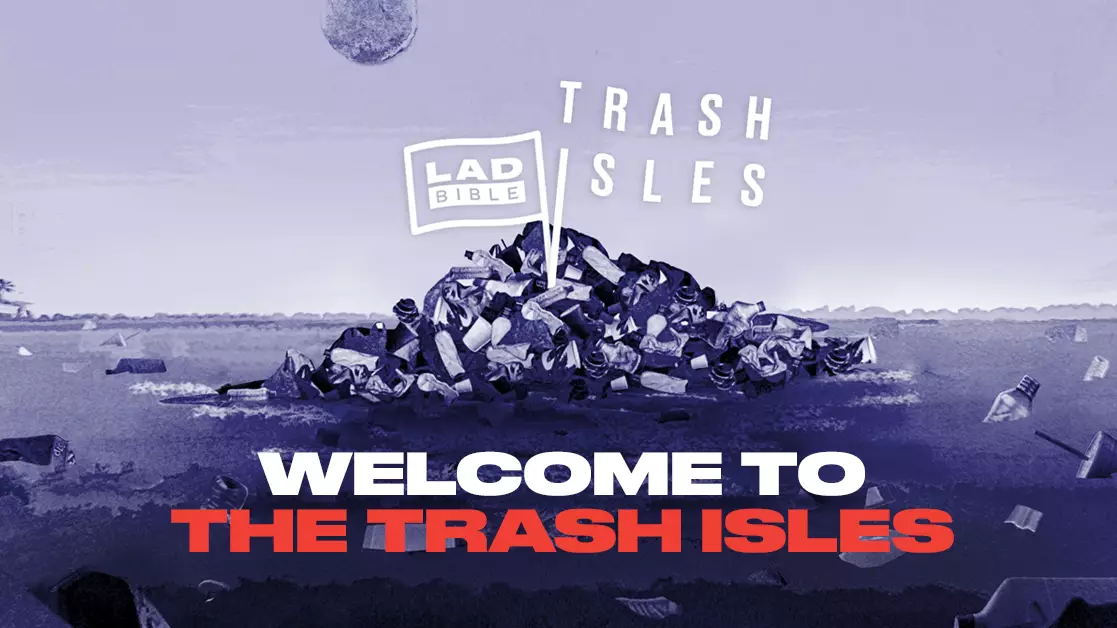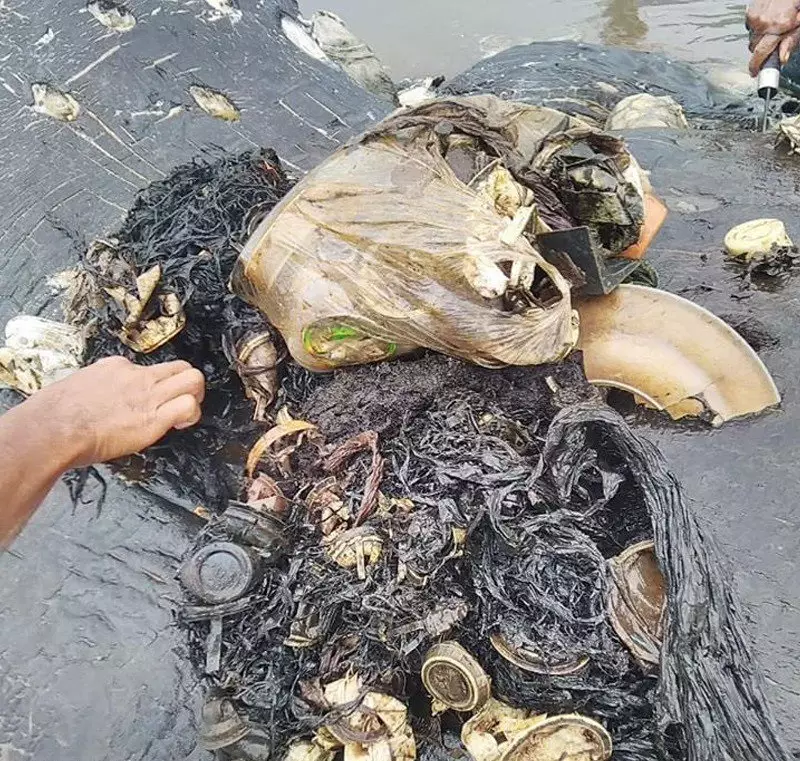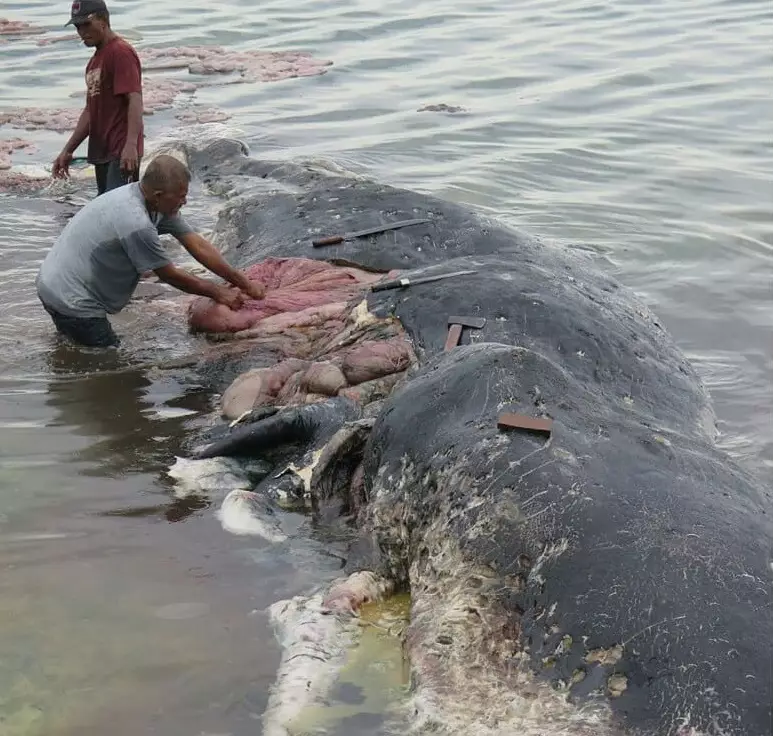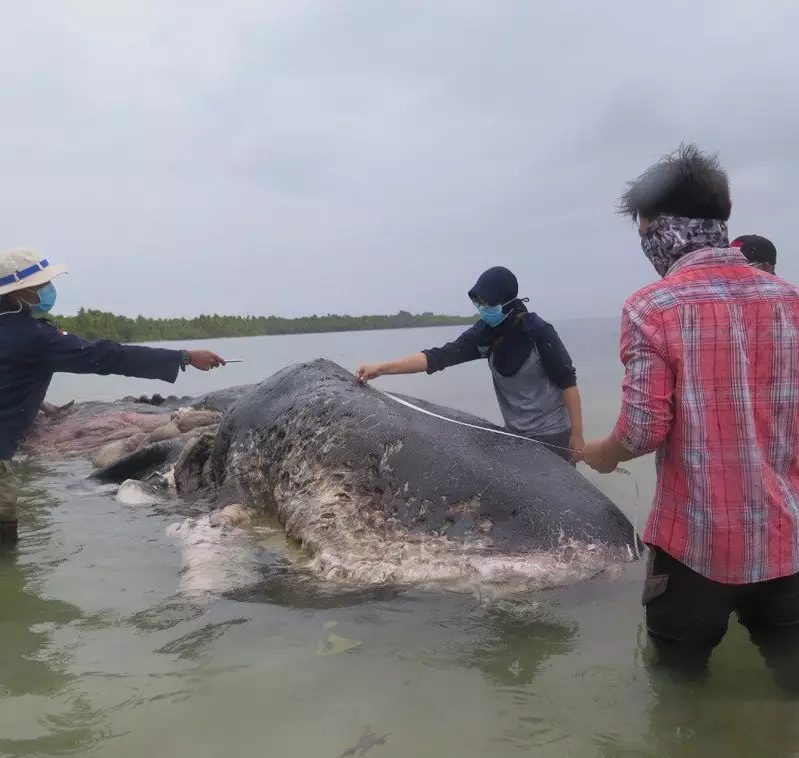
A whale that has washed up dead on the shores of eastern Indonesia was found to have a huge amount of plastic inside its stomach, including sandals and more than one hundred drinking cups.
The incident has shocked the country's government officials and environmentalists to the core. Indonesia has one of the largest plastic pollution problems in the world.
The 9.5 metre long sperm whale was found rotting just off the coast of the Wakatobi national park in Southeast Sulawesi on Monday.
It was discovered after reports that locals had gathered around the carcass to butcher it for meat, according to the park's chief, Heri Santoso.

Upon further examination of the dead whale, it was found to have swallowed nearly six kilograms of plastic waste. There were more than 1,000 individual pieces of plastic including four bottles, 115 cups, a sack, and 25 single use carrier bags.
It is not clear whether the plastic what what eventually killed the whale, but the discovery nonetheless presents a stark example of the reality of ocean plastic pollution.
Dwi Suprapti, a World Wildlife Fund Indonesia marine species conservation co-ordinator said: "Although we have not been able to deduce the cause of death, the facts that we see are truly awful."
Environmentalists were unable to discover whether the animal was killed by the plastic because it had already decomposed significantly.

After China, Indonesia is the world's largest plastic polluter, according to research published earlier this year. More than one million tonnes of plastic end up in their oceans every year. The country creates more than three million tonnes of mismanaged plastic waste every year.
These statistics make for grim reading, especially when the diversity and variety of Indonesia's marine life is taken into consideration.
The Indonesian co-ordinating minister of maritime affairs, Luhut Binsar Pandjaitan, said that the government had been shocked into action following the discovery of the whale.
Pandjaitan also said that the grim find should raise awareness amongst the general population of Indonesia regarding plastic use and waste.
He said: "I'm so sad to hear this.
"It is possible that many other marine animals are also contaminated with plastic waste and this is very dangerous for our lives."
The Indonesia government has been taking steps to encourage shops to end the use of plastic bags, as well as teaching students in schools about plastic waste. The overall aim is to reduce their plastic waste by 70 percent in the next seven years.

Pandjaitan told AP: "This big ambition can be achieved if people learn to understand that plastic waste is a common enemy."
Featured Image Credit:Topics: News, Asia, trash isles, Animals